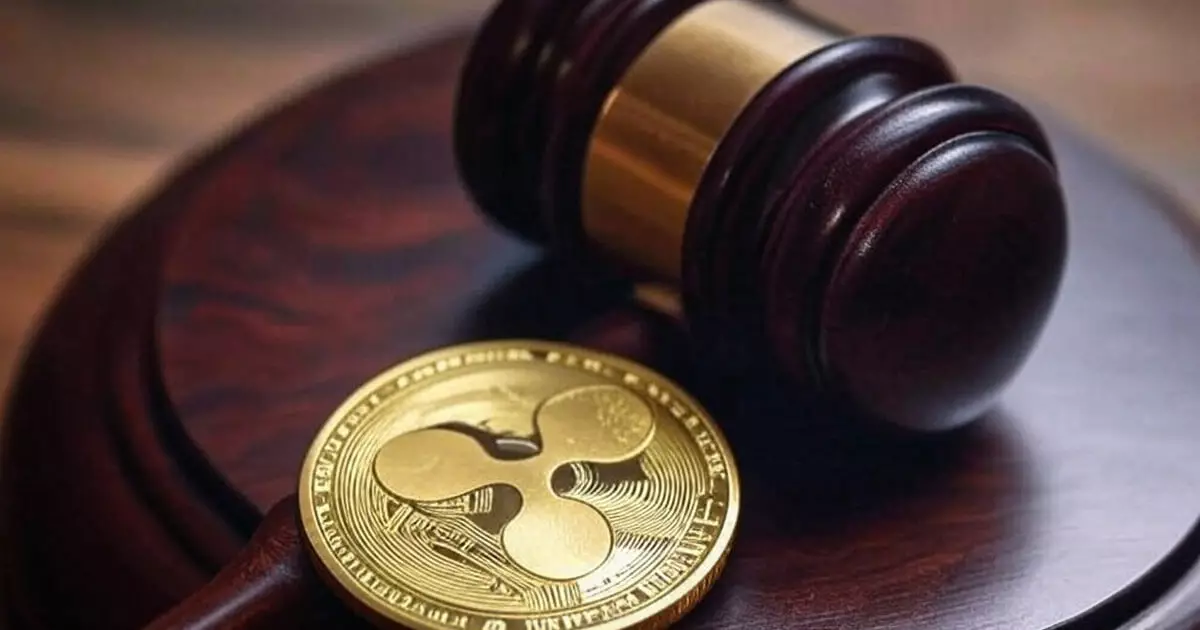The ongoing battle between the U.S. Securities and Exchange Commission (SEC) and Ripple Labs has captured the attention of the cryptocurrency world since it began in December 2020. Ripple, known for its innovative cross-border payment solutions leveraging its digital currency, XRP, found itself embroiled in a legal firestorm with regulators who argued that XRP sales amounted to unregistered securities offerings. The SEC’s allegations against Ripple CEO Brad Garlinghouse and Executive Chairman Chris Larsen added an air of drama to a case that has since become emblematic of the broader struggle within the cryptocurrency industry to navigate uncharted regulatory waters.
The recent proposal for a settlement between Ripple and the SEC, which includes a $50 million civil penalty and the potential release of $125 million held in escrow, raises critical questions not only about the effectiveness of regulatory oversight but also about the future of cryptocurrency itself in a landscape rife with uncertainty. Instead of drawing a definitive line in the sand for what constitutes a security, the SEC is opting for a pragmatic approach in this instance. But is this really a victory for innovation, or does it serve to underscore the murky waters in which cryptocurrency firms are forced to operate?
The Nature of the Settlement
As stakeholders await an indicative ruling from Judge Analisa Torres of the Southern District of New York, the details of the proposed settlement unfold. The SEC’s request reflects its shifting enforcement priorities in the face of a rapidly evolving crypto landscape. While the settlement does not render a formal judgment regarding the merit of XRP—leaving room for future interpretation—it nonetheless carries weight in signaling a pragmatic resolution after nearly four years of intense legal proceedings.
The decision to relinquish $75 million back to Ripple while accepting a $50 million penalty is noteworthy. This agreement perhaps marks a recognition by the SEC of the shifting tides in public sentiment towards cryptocurrencies and the urgent need for regulations that nurture innovation while ensuring investor protection. However, one has to question whether this settlement might inadvertently diminish the critical dialogue on clearer regulations that the crypto space desperately requires. Wouldn’t a more definitive ruling present a clearer path for the industry?
Broader Implications
This case has significant ramifications for crypto regulation in the United States. The SEC’s willingness to pursue a settlement may signal a softening of its previously hardline stance—at least under certain circumstances—but it also raises the troubling specter of inconsistency in regulatory enforcement. By permitting Ripple to pay a fraction of the initial penalty while forgoing a concrete ruling, the SEC might inadvertently encourage other crypto firms to make similar moves to settle rather than risk long protracted legal disputes.
What emerges is a potential dichotomy wherein well-resourced entities can negotiate their way to more favorable terms while smaller startups struggle to navigate the complex legal terrain. For smaller companies without the benefit of deep pockets like Ripple, the ambiguity surrounding securities regulation raises the stakes and might even compel them to eschew innovation for fear of incurring the wrath of regulatory bodies.
The Crypto Community’s Response
The reaction from the crypto community has been a medley of relief, skepticism, and caution. Many see this settlement as a positive step forward, allowing Ripple to refocus its resources on innovating and expanding its market reach after years of legal conflicts. However, others express concern that the SEC’s current approach has not sufficiently resolved the fundamental debates surrounding regulatory clarity.
This dynamic of waiting for an indicative ruling adds a layer of drama to an already convoluted situation. How much longer will the industry be held in limbo, risking stifling innovation in what is often lauded as a forward-thinking arena? Shouldn’t regulatory bodies be providing guidance rather than prolonging uncertainty? The SEC’s role here is pivotal; their actions could either foster a thriving ecosystem or, conversely, lock it into complacency due to legal entanglements that stymie creative solutions.
As the case unfolds, the effects on Ripple specifically, and cryptocurrency regulation overall, will be keenly analyzed. It remains to be seen whether this settlement signifies a turning point that clears the path for future innovation or merely highlights the chasm of uncertainty within which the cryptocurrency industry continues to fumble.

